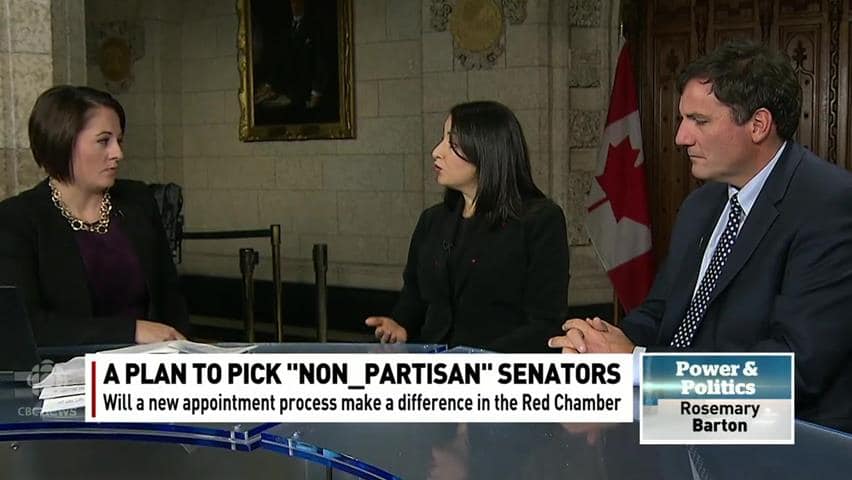B.C. Premier Christy Clark slams reforms; NDP calls plan an 'inadequate fix'
By Kathleen Harris, CBC News Posted: Dec 03, 2015 8:35 AM ET Last Updated: Dec 03, 2015 8:05 PM ET

Monsef on new way to appoint Senators 0:57
The Liberal government is overhauling the Senate appointment process in a bid to end bitter partisanship and restore public confidence in the scandal-plagued Senate, but the plan is already under fire.
Minister of Democratic Institutions Maryam Monsef and House leader Dominic LeBlanc today announced a five-member independent advisory board will be struck to make recommendations for "merit-based" candidates to sit in the Senate.
"It brings real change to the Senate for the first time in decades," she said.
British Columbia Premier Christy Clark was one of the first to criticize the proposed changes, announcing on Twitter that her province won't participate in the process.
"Today's changes don't address our concerns — Senate has never represented B.C.'s interests at the national level," she tweeted.
Minister of Democratic Institutions Maryam Monsef and House leader Dominic LeBlanc today announced a five-member independent advisory board will be struck to make recommendations for "merit-based" candidates to sit in the Senate.
- Liberals appoint Furey to replace Housakos as Senate Speaker
- ANALYSIS | Senate Liberals unsure how to work with Trudeau government
- Senator John Wallace quits Conservative caucus citing 'irreconcilable' differences
- New Parliament's 1st act will be to elect House of Commons Speaker
"It brings real change to the Senate for the first time in decades," she said.
British Columbia Premier Christy Clark was one of the first to criticize the proposed changes, announcing on Twitter that her province won't participate in the process.
"Today's changes don't address our concerns — Senate has never represented B.C.'s interests at the national level," she tweeted.









